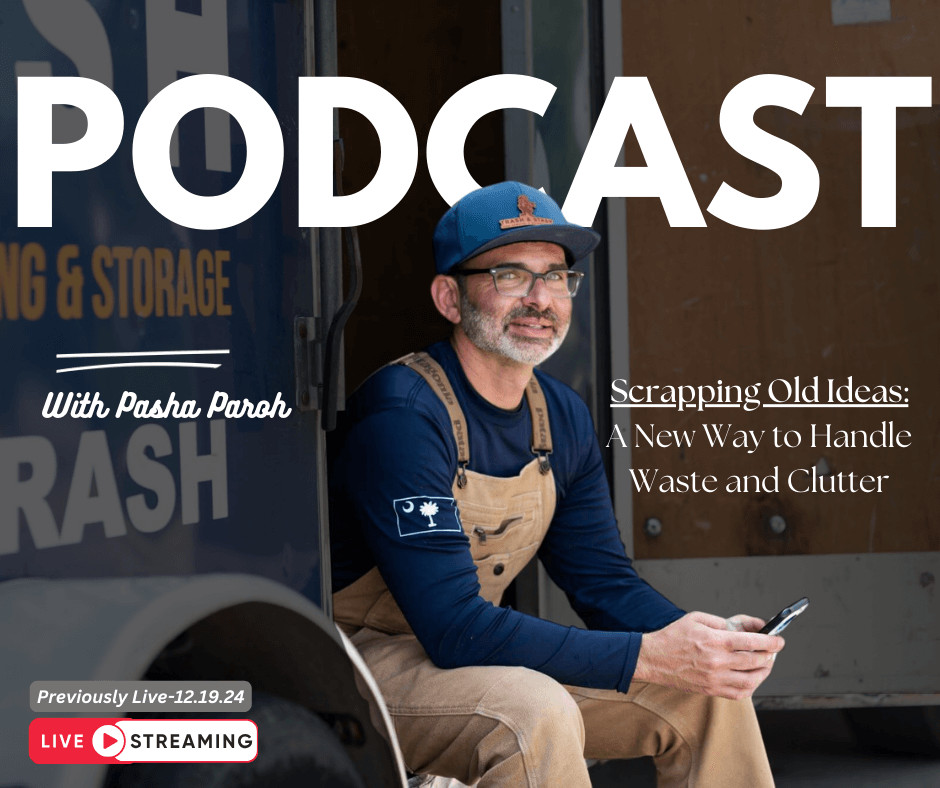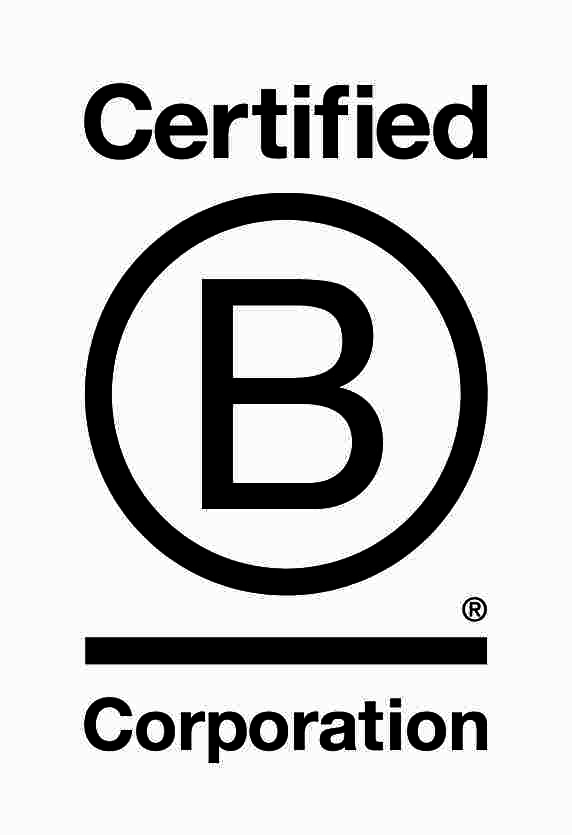Scrapping Old Ideas: A New Way to Handle Waste and Clutter
Have you ever thought about what happens to your trash after you toss it (I happen to obsess over it)? Most people don’t give it a second thought. But what if we could rethink the entire concept of waste? That’s exactly what I had the opportunity to explore during my recent appearance on a livestream and podcast hosted by Pasha Paroh. The episode, titled “Scrapping Old Ideas: A New Way to Handle Waste and Clutter,” dives deep into reimagining the way we deal with trash and junk—both as individuals and businesses.
The conversation was challenging, thought-provoking, and, above all, inspiring. We tackled big questions about waste diversion, the circular economy, and how sustainable practices like those embraced by B Corps can drive meaningful change. In this blog post, I’ll introduce some of the key topics we discussed and invite you to join us in rethinking what “trash” really means.
Waste Diversion: Turning Trash into Opportunity
One of the central themes of our discussion was waste diversion—the process of redirecting waste away from landfills and toward more sustainable alternatives like recycling, repurposing, and donation. At Trash and Stash Junk Removal, waste diversion is at the heart of what we do.

We work hard to ensure that as much as possible of what we haul away gets a second life, whether that’s through local donation centers or creative repurposing projects.
During the podcast, we talked about how waste diversion isn’t just an environmental initiative; it’s also a mindset shift. Instead of seeing items as “junk,” we start to see their potential. That old couch, broken desk, or pile of scrap wood might not be trash at all—it might just be waiting for someone who can use it.
The Circular Economy: Closing the Loop
The circular economy was another key topic of conversation. Unlike the traditional linear model of “take, make, waste,” the circular economy focuses on keeping resources in use for as long as possible. This means designing products that last longer, repairing and refurbishing items, and recycling materials into new products.
For example, consider an old mattress. In a linear economy, that mattress might end up in a landfill, where it takes up space and releases harmful chemicals.
By adopting circular economy principles, businesses and individuals alike can reduce waste and conserve resources. It’s not just about managing waste better; it’s about preventing waste from being created in the first place.
B Corps and the Role of Businesses in Sustainability
Another highlight of the conversation was discussing what it means to be a B Corp. B Corps are businesses that meet the highest standards of social and environmental performance, accountability, and transparency. At Trash and Stash Junk Removal, we’re proud to be the first B Corp certified junk removal company in the U.S.
Why does this matter? Because businesses have a powerful role to play in creating a more sustainable future. As a B Corp, we’re not just focused on profits; we’re also committed to making a positive impact on our community and the environment. This includes everything from minimizing the waste we send to landfills to supporting local nonprofits with donations.
During the podcast, Pasha and I explored how the B Corp movement is shifting the way businesses think about success.
It’s not just about financial growth—it’s about creating value for all stakeholders, including employees, customers, communities, and the planet.
Why This Matters to You
So, why should you care about waste diversion, the circular economy, or B Corps? Because the way we handle waste impacts everyone. From overstuffed landfills to pollution in our waterways, the effects of our throwaway culture are far-reaching. But there’s good news: by rethinking waste, we can create a cleaner, greener future.
Here are a few simple steps you can take to get involved:
Choose businesses that prioritize sustainability. Support companies that align with your values and are committed to making a difference.
Think before you toss. Before throwing something away, consider if it can be reused, donated, or recycled.
Spread the word. Share resources and ideas about waste diversion and sustainability with your network.
Watch the episode.
If you’re curious to learn more, I encourage you to check out the full podcast episode. Pasha and I cover these topics and more in “Scrapping Old Ideas: A New Way to Handle Waste and Clutter.” Whether you’re a business owner, a sustainability enthusiast, or just someone looking to make a positive impact, there’s something in this episode for you.
VIDEO LINK: Scrapping Old Ideas.
Together, we can redefine what “trash” means and take steps toward a more sustainable future. Let’s start scrapping those old ideas and embracing new ways to handle waste and clutter!





